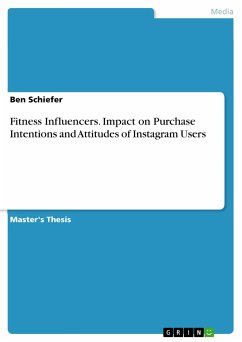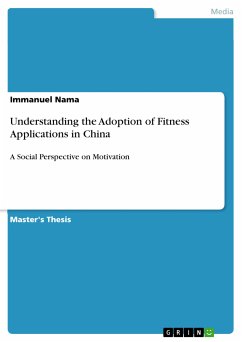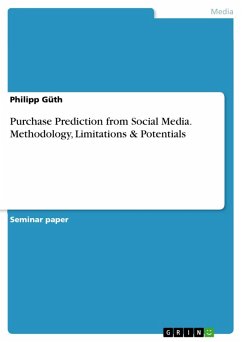Master's Thesis from the year 2018 in the subject Communications - Public Relations, Advertising, Marketing, Social Media, grade: 1,3, Berlin School of Economics and Law, language: English, abstract: This master thesis empirically assesses the impact of the fit between digital fitness influencers and promoted brands on attitudes and purchase intentions of Instagram users. The study identifies attitudes toward source - both source credibility and source trustworthiness, attitudes towards ads and attitudes towards brands as important constructs to measure the advertising impact on attitudes. Based on a review of the existing literature regarding digital influencers and the concept 'fit', an experiment with two conditions was conducted via independent online surveys. They were carried out to members of online fitness forums and communities and fitness groups on social network sites. Data collected from 109 respondents in survey A and 110 in survey B was analyzed and tested using unpaired 2-sided tests. The empirical study reveals the relevance of influencer-/brand fit. The results confirm that the impact on all tested constructs is significantly more positive for the test group exposed to the survey including a post of a digital fitness influencer with a high perceived influencer-/brand. The findings require further confirmation in other settings and industry sectors before they can be generalized, but offer helpful new insights to better allocate efforts and resources to effectively manage the collaboration with digital influencers. A high influencer-/brand fit serves as a key driver for advertising effectiveness of influencer marketing.
Dieser Download kann aus rechtlichen Gründen nur mit Rechnungsadresse in A, B, BG, CY, CZ, D, DK, EW, E, FIN, F, GR, HR, H, IRL, I, LT, L, LR, M, NL, PL, P, R, S, SLO, SK ausgeliefert werden.









